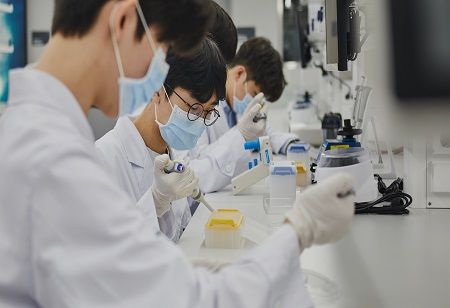- South Korea’s government is reviving plans to establish a public medical academy and a 'regional doctor system', aiming to train doctors for underserved areas and strengthen public health infrastructure.
- The regional doctor program will reserve medical school slots for students who commit to about 10 years of service in underserved communities, while national university hospitals may be shifted under the Health Ministry to improve staffing, operations, and regional care.
- Over 1 trillion won ($717 million) will be allocated next year for biohealth, medical AI, pharmaceuticals, and regenerative medicine R&D, as part of a broader strategy to reduce regional disparities and build a sustainable health care system.
Lee Jae Myung's government is resuscitating proposals to build a public medical academy and implement a 'regional doctor system', placing long-contested measures at the forefront of a drastic shake-up of South Korea's public health care and social security networks.
In a policy briefing, Health and Welfare Minister Jeong Eun-kyeong said the government will, within a year, draw up the legal foundation for the public medical academy to educate doctors dedicated to essential and regional care. Construction of the school itself may take three to five years, depending on legislative progress, she added.
In addition to the academy, the administration will implement a regional doctor program that reserves a number of medical school slots for students who commit to practice roughly 10 years in underserved communities after they receive their licenses.
The Korean Medical Association cautioned that the plan is unconstitutional in respect of rights to select a profession and where to live. Jeong countered, though, that it has been legally examined with minimal risk where candidates opt voluntarily for the duty at entry into medical school. Comparable proposals were initiated in 2020 during the Moon Jae-in administration but were abandoned following the opposition of doctors.
These flagship projects are part of a comprehensive master plan to narrow regional disparities and strengthen core medical care. The government also hopes to finalize its plan to transfer control of national university hospitals from the Education Ministry to the Health Ministry by year-end. Jeong added that the shift would create more flexibility in terms of staffing, salaries and clinical operations, and assist in the development of the hospitals as regional centers that can take critically ill patients.
Also Read: Challenges and Opportunities in Higher Education of Clinical Research
"We have made long-term plans to increase clinical capacity and regional networks by moving national university hospitals to the Welfare Ministry", she said, adding that the Education Committee of the National Assembly is currently considering the legislation needed.
Beyond health care delivery, the ministry plans to inject more than 1 trillion won ($717 million) next year into research and development in biohealth, medical AI and pharmaceuticals the first time such funding will exceed the trillion won mark. The funds will support full-cycle projects from basic research to commercialization, including a specialized fund for Phase 3 clinical trials and advanced regenerative medicine.
Meanwhile, in response to the current furlough of protesting doctors against the former administration's plan to increase the quota of the medical school by 2,000 students, Jeong stated that the government audit on the plan was still ongoing. She further added that the Board of Audit and Inspection will release the results after it has reviewed them.
These plans are included in five basic policy objectives and 11 national tasks to construct a sustainable health care system. The ministry will issue detailed guidelines next month after a public medical innovation committee collects social consensus. Jeong emphasized that the reforms will be aimed at minimizing regional disparities, assuring basic medical care and reinforcing public health infrastructure. "Our aim is to develop an enduring health care system for Korea", she stated.

